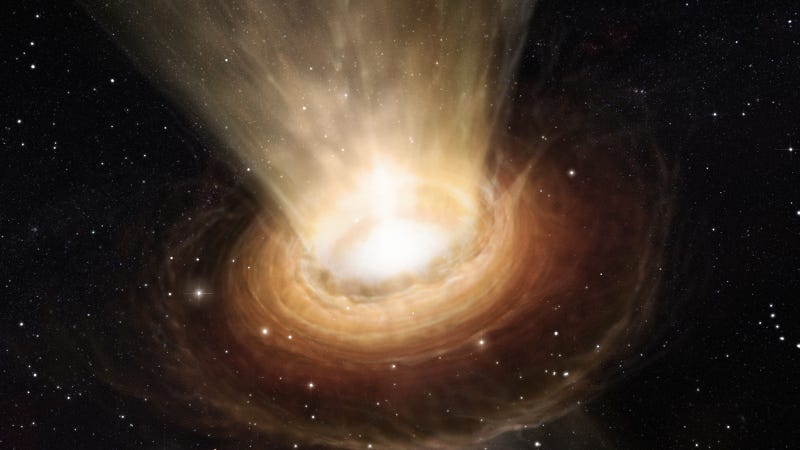Scientists
have proposed a radical new way of think about how the universe began. In a new
imagining of the Big Bang theory, they think it could have been the result of a
four-dimensional star collapsing in on itself to form a black hole, which then proceeded to spew
its guts out and, kindly, form our universe.
The
standard Big Bang theory has some limitations. The singularity—the idea that
everything came from essentially nowhere—is one of them. The fact that the
universe is at an almost uniform temperature is another, because that doesn't
square with the speed at which the universe has expanded. So physicists often
ponder alternative theories that could explain the origin of our universe.

And
that's just what Niayesh Afshordi, an astrophysicist with the Perimeter
Institute for Theoretical Physics in Canada, has done. Here's, roughly, what he
proposed:
- Our
three-dimensional universe floats as a membrane in a "bulk
universe" that has four dimensions.
- That
"bulk universe" has 4D stars, which go through the same life
cycles as our normal 3D ones.
- The most
massive ones explode as supernovae, and their central core collapses into
a black hole, like in our universe—just in 4D.
- The 4D
black hole has its own 4D "event horizon," a boundary between
the inside and the outside of a black hole.
- In a 3D
universe, the event horizon appears to be 2D. In a 4D universe, it appears
to be 3D. (Do you see where this is going?)
- The 4D
black hole, then, blows apart, with the leftover material forming a 3D
membrane, surrounding a 3D event horizon, which expands—and is
essentially our universe.
So,
according to the theory, our universe is the vomited-up guts of a 4D black
hole. The expansion of the event horizon explains our universe's expansion; the
fact that its creation stems from another 4D universe explains the weird
temperature uniformity. You can take a second to process all that, it's okay.
Of
course, it's speculative; it's pretty tricky, after all, knowing for sure what
happened at the birth of our universe, and the work's yet to be peer reviewed,
but the researchers think it has promise. Plus, there's something comforting in
the notion that we're all just spatters of stellar vomit. [arXiv]
Comments
Post a Comment